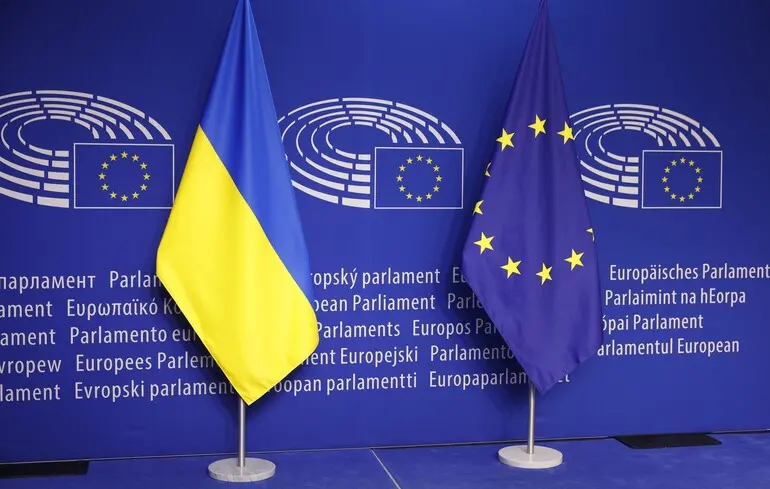EU Plans to Allocate Up to 130 Billion Euros in Reparations Credit to Ukraine

The European Union is considering a significant financial support package for Ukraine, potentially amounting to as much as 130 billion euros, in the form of a reparations loan.
This initiative aims to serve as a vital instrument in Ukraine’s post-conflict recovery and economic stabilization.
The funding is expected to be sourced from frozen Russian assets, which are estimated to total over 210 billion euros and are partly stored in the Belgian Securities Depository Euroclear.
Officials indicate that the final loan amount will be determined after analysis of Ukraine’s financial needs by the International Monetary Fund in 2026 and 2027.
The proposal for this reparations loan was put forward by European Commission President Ursula von der Leyen in September and enjoys support from most EU member states.Ukraine will be able to service this loan only after receiving reparations from Russia, potentially through a peace agreement.
The financial and geopolitical risks will be collectively borne by Europe and possibly other G7 nations.
Currently, the bulk of accessible assets is held in Euroclear, where around 210 billion euros of Russian securities are stored.
About 175 billion euros of these assets have matured and can be mobilized for new financing mechanisms.Prior to approving any new credit, the EU plans to settle its existing G7 debt of 45 billion euros, a move that will leave approximately 130 billion euros available for new financial instruments.
Experts highlight that the mechanism being developed aims to enable the EU to utilize frozen Russian assets without direct confiscation, a red line for many member states and the European Central Bank.
Notably, Germany has recently shifted its stance regarding the potential use of Russian frozen assets, indicating a change in approach.
This strategy might significantly influence the future funding and reconstruction efforts in Ukraine, shaping the broader geopolitical landscape concerning sanctions, reparations, and international cooperation.

